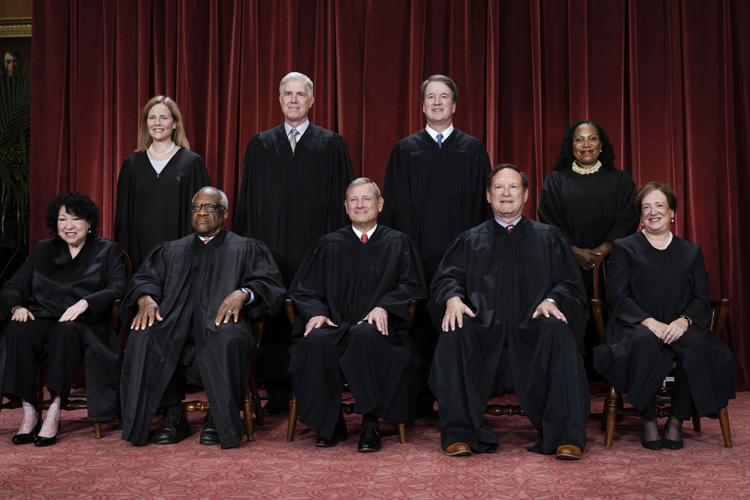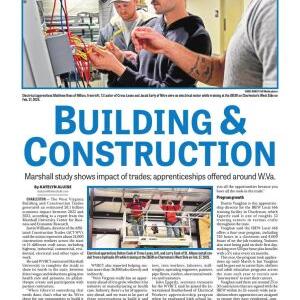Experts at federal agencies should have the freedom to interpret the laws they administer.
That�����Ƶ�s been the guiding thought behind a 40-year legal doctrine that has allowed agencies to craft critical environmental and health regulations when scientific or technical questions arise in their areas of expertise.
The U.S. Supreme Court�����Ƶ�s conservative supermajority upended that precedent last week, ruling that judges �����Ƶ� not agencies �����Ƶ� should determine the best ways to interpret ambiguous statutes.
Legal scholars say the released last Friday could seismically affect everyday life by tying the hands of agency experts. Now it�����Ƶ�ll be judges, not agencies with statute-related expertise those judges likely lack, who interpret health and safety laws.
�����Ƶ�[C]ourts may not defer to an agency interpretation of the law simply because a statute is ambiguous. Chevron is overruled,�����Ƶ� Chief Justice John Roberts Jr. wrote in the prevailing opinion, referring to Chevron U.S.A., Inc. v. Natural Resources Defense Council, Inc., the 1984 case that created what�����Ƶ�s known as �����Ƶ�Chevron deference�����Ƶ� among federal courts to administrative agencies.
Critics of the decision say the result will be much weaker patient and consumer protections following an influx of deregulation-minded legal challenges that threaten to overwhelm federal courts and block agencies from responding to scientific and technological developments in their application of bedrock administrative laws.
�����Ƶ�If you�����Ƶ�re a fan of efficient government and separation of powers, you just had a very bad day,�����Ƶ� Leonardo Cuello, a research professor at the Georgetown University McCourt School of Public Policy�����Ƶ�s Center for Children and Families, wrote in a published last Friday.
But West Virginia Attorney General Patrick Morrisey hailed the end of Chevron deference after his office led a 27-state coalition that filed a July 2023 brief challenging the doctrine.
�����Ƶ�Congress�����Ƶ�s words matter, not agencies�����Ƶ� policy preferences,�����Ƶ� Morrisey said in a statement.
The overturning of Chevron deference is expected to have a heightened impact on the Environmental Protection Agency, given the body�����Ƶ�s dependence on interpretations of the Clean Air Act, enacted in 1970, to respond to the much more recent challenge of greenhouse gas regulation to slow climate change.
president Chris Hamilton applauded the court�����Ƶ�s ruling, claiming the industry has experienced the EPA �����Ƶ�abusing�����Ƶ� its rulemaking power through liberal interpretation of congressional intent to justify extreme or onerous rules and enforcement actions. The Gas and Oil �����Ƶsociation of West Virginia declined to comment.
Dani Parent, organizing director at , a progressive advocacy organization, sees the downfall of Chevron deference differently, calling it a �����Ƶ�skewed decision�����Ƶ� that strips agencies of the ability to make scientifically informed regulations.
The court�����Ƶ�s ruling could hit West Virginia especially hard given the state�����Ƶ�s high environmental and health vulnerabilities that federal agencies are partly responsible for limiting.
West Virginia is particularly prone to issues projected to get worse as climate change worsens, including severe flooding and power outages.
The carbon intensity of West Virginia�����Ƶ�s economy �����Ƶ� metric tons of energy-related carbon dioxide emissions per million dollars of gross domestic product �����Ƶ� was second highest in the nation in 2021 behind only Wyoming, per a Gazette-Mail review of EIA data.
West Virginia ranked 49th nationally in health outcomes, including 50th in rates of drug deaths, mental and physical distress, multiple chronic conditions, nonmedical drug use and obesity, according to a 2023 health rankings report released by the United Health Foundation, a health care improvement group.
�����Ƶ�[P]articularly in West Virginia, we rely on the experts in regulatory agencies to ensure our health, safety and well-being and to hold the line for people over profit,�����Ƶ� Parent said.
Appeals courts leaned strongly on Chevron doctrine
In a June 2023 report on Chevron deference, the Congressional Research Service said search of the Westlaw legal research electronic database indicated Supreme Court and lower federal courts had cited the Chevron decision more than 18,000 times.
An increasingly conservative Supreme Court relied on the Chevron framework less and less over the years, including declining to apply it in a 2015 5-4 decision that found the EPA interpreted a Clean Air Act statute unreasonably when it deemed cost irrelevant to a decision to regulate power plants.
But courts of appeals kept relying heavily on the doctrine.
The Congressional Research Service�����Ƶ�s 2023 analysis cited a 2017 study that evaluated over 1,300 courts of appeals cases from 2003 to 2013 that found courts of appeals applied Chevron in nearly three-quarters of cases addressing agency interpretations. A subsequent study that surveyed courts of appeals cases from 2020 to 2021 showed that courts of appeals still applied Chevron at similar rates as those found in the 2017 study.
Agencies were significantly more likely to prevail when an appeals court applied the Chevron framework (77.4%), even if the court decided the statute was unambiguous and didn�����Ƶ�t defer to the agency�����Ƶ�s interpretation, than when a court applied no deference (38.5%), according to the study.
The by University of Georgia and Ohio State University researchers and published by the Michigan Law Review.
The Court of Appeals for the Fourth Circuit, which hears appeals from nine federal district courts in West Virginia, Maryland, North Carolina and Virginia, had the second-largest gap between agency win rates with and without Chevron framework �����Ƶ� 79.3% with Chevron and 42.9% without, according to the 2017 study.
Although Roberts�����Ƶ� prevailing opinion said it didn�����Ƶ�t call into question prior cases that relied on the Chevron framework, his court issued another 6-3 decision three days later that did just that.
The court on Monday expanded the statute of limitations for suits against the United States, holding the six-year window for such suits doesn�����Ƶ�t begin until a plaintiff is injured by final agency action rather than when the agency issued the rule.
West Virginia led an 18-state coalition that supported the plaintiffs in the case, filing a November 2023 brief that asserted it was important to keep the administrative state from getting �����Ƶ�perpetually more powerful.�����Ƶ�
�����Ƶ�We filed the brief in an effort to empower courts to stop the expansion of big government and protect the interests of the people we serve,�����Ƶ� Morrisey said in a Monday news release that hailed the attorney general �����Ƶ� who won the 2024 Republican gubernatorial primary in May �����Ƶ� as �����Ƶ�Again Victorious in Reining in Administrative State.�����Ƶ�
Justice Ketanji Brown Jackson noted in a dissenting opinion the combination of Monday�����Ƶ�s decision and the end of Chevron deference would make it possible for �����Ƶ�every legal claim conceived of�����Ƶ� in the last four decades and before to be brought before courts �����Ƶ�newly unleashed from the constraints of any such deference.�����Ƶ�
Jody Freeman, founder of the Harvard Environmental and Energy Law program, wrote in a published by the Yale School of the Environment last month prior to the court issuing its opinion that overturning Chevron likely would inspire lawsuits and instability in lower courts, resulting in relitigation of thousands of interpretations courts already settled.
Wide-ranging impacts expected
The demise of Chevron deference will make it easier for Chevron and other oil and gas giants to slow down and block regulations, �����Ƶ�allowing them to pollute with near impunity,�����Ƶ� L. Delta Merner, lead scientist for a Union of Concerned Scientists group of experts and scholars working at the intersection of science and climate litigation, predicted in a published by the organization Monday. The Union of Concerned Scientists is a national science advocacy group.
Merner said judges will have more need to rely on �����Ƶ�friend of the court�����Ƶ� briefs in writing opinions �����Ƶ� briefs she believes fossil fuel companies will have the funding to file aggressively �����Ƶ� gaining them equal weight compared with agency scientists and experts.
Cuello predicted the Department of Health and Human Services and the Centers for Medicare and Medicaid Services will be far less able to effectively run Medicaid, the Children�����Ƶ�s Health Insurance Program, the Affordable Care Act marketplaces, Medicare and other health programs.
�����Ƶ�[Y]ou should expect to see a whole lot of HHS and CMS actions [and those of other departments and agencies] get challenged by all kinds of aggrieved parties, with courts stepping in to evaluate and sometimes overturn the health care policies designed by agency experts,�����Ƶ� Cuello wrote.
AFL-CIO president Liz Shuler said her federation of unions condemned the court�����Ƶ�s Chevron decision in a statement, saying it opens up corporate challenges to actions of OSHA and the National Labor Relations Board and fearing employers could get away with retaliation, union-busting and maintaining dangerous workplace conditions.
�����Ƶ�Alarm bells are ringing�����Ƶ�
The , a national alliance of consumer, labor, community, health, environmental and public interest groups whose committee includes the AFL-CIO, responded to the Chevron decision by urging passage of the Stop Corporate Capture Act.
The proposed legislation, , would provide statutory authority for Chevron deference and require interested parties who submit a study or research as part of a comment to a proposed rule to disclose the source of the funding for the study or research.
The bill is sponsored by Rep. Pramila Jayapal, D-Wash., but has stalled in the Republican-controlled House Judiciary Committee since it was introduced in March 2023.
Vickie Patton, general counsel for the Environmental Defense Fund, an international environmental advocacy group, responded to Chevron deference�����Ƶ�s demise by pointing to the ballot box.
�����Ƶ�The alarm bells are ringing to vote,�����Ƶ� Patton said in a statement.
In the meantime, Chevron�����Ƶ�s overturning already showed a regulatory ripple effect.
The Supreme Court cited its Chevron decision in an order Tuesday throwing out a 2023 D.C. Circuit Court ruling that deferred to a Federal Energy Regulatory Commission interpretation of a 1978 law that allowed a Montana solar project to move forward.
Freeman, the Harvard Environmental and Energy Law program founder, suggested judges consider that �����Ƶ�there may be limits to their prowess�����Ƶ� and that agencies can be �����Ƶ�legitimate legal interpreters.�����Ƶ�
�����Ƶ�That attitude represents a certain faith in the capacity and competence of government that it would be a terrible shame to lose,�����Ƶ� Freeman wrote.














